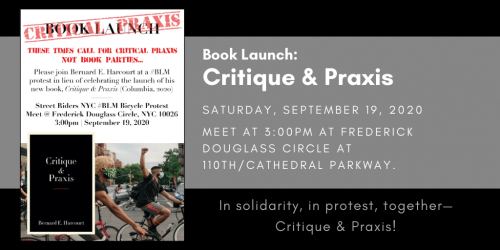Jean-Luc Nancy on Finite and Infinite Democracy
“The power drive outstrips or surpasses power, while at the same time seeking power for its own sake. The surpassing of power is the very principle of democracy—but as its truth and grandeur (indeed its majesty), not as its annihilation.”—Jean-Luc Nancy
Continuing our series of excerpts from Democracy in What State? , Jean Luc-Nancy, in his essay “Finite and Infinite Democracy,” measures the difference between democracy as a form of rule and as a human end. (For excerpts from other contributors: Giorgio Agamben, Alain Badiou, Daniel Bensaid, and Wendy Brown).
In this passage, Nancy explores democracy relationship with power:
To resume then: the problem democracy has with power is its innate reluctance to use or wield power of the “exterior” kind, the kind that, when used, makes starkly evident the absence of the kind of symbolism of which feudal allegiance and national unity and all religions, civic or not, were and are such potent bearers. From this perspective, the true, longed-for name of democracy, the name that it did in fact engender and that was its horizon for 150 years, was communism. Whether that dreaded word belongs entirely in and to the past is something I don’t intend to go into here. But I do interpret communism, again from this perspective, as an expression of society’s drive to be more than a society—to be a community with a symbolic truth of its own. That was the idea behind the word, if you can even call it an idea; it certainly wasn’t a concept in the strict sense, more of an urge or impulse of thought impelling democracy to interrogate its own essence and ultimate purpose….
The fact that power organizes, manages, and governs—that in itself is not a reason to condemn its demarcation into a separate sphere. Hence, no matter how “communist” we may wish we were, we are today having to reckon with the necessity, the need, for the State. Problems like international law and the limits of classical sovereignty are concomitants of the need for the State, not objections to it.
This is not a call for us to resign ourselves to the inevitable. There is more to power than just a basic imperative of government. Power is a kind of desire, an impulse to dominate and a corresponding impulse to submit. We cannot reduce all the phenomena (political, symbolic, cultural, intellectual, verbal, or visual) of power to the mechanistic play of forces incompatible with morality or with the ideal of a just and fraternal community. Yet disapproval of that kind always taints our analysis of power and its forms. This is reductive and ignores the difference between the power impulse and the mere urge to wreak death and destruction….
Of course political power is meant to protect social life, even to the extent of challenging and altering its inherited arrangements. But that’s the point. Power is in place to enable societized human beings to work out their own goals for themselves, goals over which power as such is powerless: the endless ends of meaning (les fins sans fin du sens), of meanings, of forms, of intensities of desire. The power drive outstrips or surpasses power, while at the same time seeking power for its own sake. The surpassing of power is the very principle of democracy—but as its truth and grandeur (indeed its majesty), not as its annihilation.
1 Response
Leave a Reply
You must be logged in to post a comment.






I am trying to get in touch with Jean-Luc Nancy. We are developing an art project and I want to know if he would be interested in participate in this project with a brief text.
Thank you
María Luisa